Some Canadian journalists recently faced a particularly vicious and seemingly coordinated series of targeted, hateful emails and direct messages. In response, earlier this week a collection of 19 publications, newspaper chains and journalism organizations released a statement pledging that they will stand “in support of journalists against online hate, threats and harassment.”
Here is the statement, in full: “A strong, diverse media is vital for a well-informed, democratic society. While criticism is an integral part of journalism and democracy, there can be no tolerance for hate and harassment of journalists or for incitement of attacks on journalists for doing their jobs. That these attacks inordinately target women and racialized journalists speaks to the motivation of the people engaging in this behaviour. We are united in supporting our journalists and newsrooms against those who seek to silence their stories and threaten their safety. Together, we will continue to advocate for industry-wide responses to end this behaviour.”
And here are the signatories: APTN, Canada’s National Observer, The Narwhal, Bell Media, the Canadian Association of Black Journalists, Canadaland, Corus, CBC Radio-Canada, La Presse, La Presse Canadienne, Canadian Press, The Walrus, Quebecor, Postmedia, Globe and Mail, La Fédération professionnelle des journalistes du Québec, The Canadian Journalism Foundation, The Canadian Association of Journalists (CAJ), Torstar.
The statement was generally well received, which is a testament to how fucked the industry has become, or always was.
Look carefully at some of the names on the list. If you’re at all familiar with the industry, you’ll realize they are generally well known for not supporting their journalists or newsrooms. This has been true in the past, and there’s no indication it will change going forward.
These names claim they will “continue to advocate for industry-wide responses to end this behaviour,” which implies they’ve done it before or are doing it now. Both are false for much of the list. And the idea that there can be a useful “industry-wide response,” short of sectoral collective bargaining, is also false. In fact, lumping all of these chains, publications and organizations together in one statement does a genuine disservice to understanding how this problem emerged, as opposed to being affirming or inspiring.
Some of the places on this list are responsible for promoting the sort of vile, hateful rhetoric and ideas journalists are facing. Why do the more progressive outlets or organizations here feel comfortable signing their names alongside these sorts of places? What purpose does this statement serve other than obscuring the poor records some of these places have on how they treat their employees, and their roles in creating toxic right-wing hate machines?
Ultimately, the statement is performative. It doesn’t list anything concrete these places have done, and it doesn’t even make an effort at pretending they’ll do anything going forward — at least anything in unison.
Since the release of the statement, some signatories have followed up with what they claim they’ll do to help solve the harassment problem. CAJ is one of them.
I do appreciate that unlike many of the signatories, the CAJ actually has some ideas on what to do. Unfortunately, one of the steps they propose is deeply flawed, and it will be troubling if it’s one other organizations and outlets decide to take.
On October 5, the CAJ published a blog post titled, “An Update On What We’re Doing To Fight Harassment Of Canadian Journalists.” In it, they note that their board of directors had a “rigorous discussion” at their quarterly meeting, and “identified concrete actions the association can take in the short, medium, and long terms” to address online hate.
One example they listed was: “We are working to establish communication with the Royal Canadian Mounted Police (RCMP) and other law enforcement agencies to understand how they plan to address the dissemination of threatening messages.” This followed up on a September 29 blog post, where they also noted they were trying to have law enforcement launch investigations into the messages.
This reveals that even after the past few years of reporting on police brutality, and movements to defund law enforcement, some journalist organizations still ultimately see the cops as being on their side. They shouldn’t.
Does it make sense for these organizations to turn to racist, sexist and abusive police forces to help address the racism, sexism and abuse journalists are facing?
Does it make sense for these organizations to bring law enforcement, which brutalizes people from marginalized groups, into the attempt to help a group of primarily marginalized people being targeted?
Does it make sense for these organizations to turn to police forces, which count neo-Nazis, white supremacists and other racist extremists among their members, to help fight back against a hate campaign that seems to have originated at this end of the political spectrum?
If the CAJ is concerned about journalists being able to do their jobs, does it make sense to turn for help to a police force that has consistently acted illegally to prevent just that from happening? If the CAJ has decried the RCMP in the past for doing this, even taking them to court, why do they believe the law enforcement agency will do anything different here?
If the CAJ is concerned about these threats turning into physical harm against journalists, does it make sense to turn for help to a police force that has already physically assaulted journalists?
Does the CAJ believe the RCMP is actually interested in press freedom?
Toronto Star columnist Shree Paradkar reported that as of Monday, “The RCMP ha[d] yet to respond to the [CAJ]’s public statements or attempts to contact them.” This shouldn’t come as a surprise.
The police are not on the side of journalists. They are not on the side of the demographic groups being targeted in these hate emails. They are not on the side of press freedom. They are not on the side of workplace equity, and certainly not on the side of liberty.
I’m not going to pretend to know what exactly the solution to the widespread harassment journalists are facing should be. But I do know that it shouldn’t, and can’t, involve cops.
It’s not my business how an individual journalist decides to deal with the hate they’re getting, and this article shouldn’t be read as an attack on any one of them. But we all stand to suffer when an organization representing journalists in Canada decides to work with the police on our behalf.


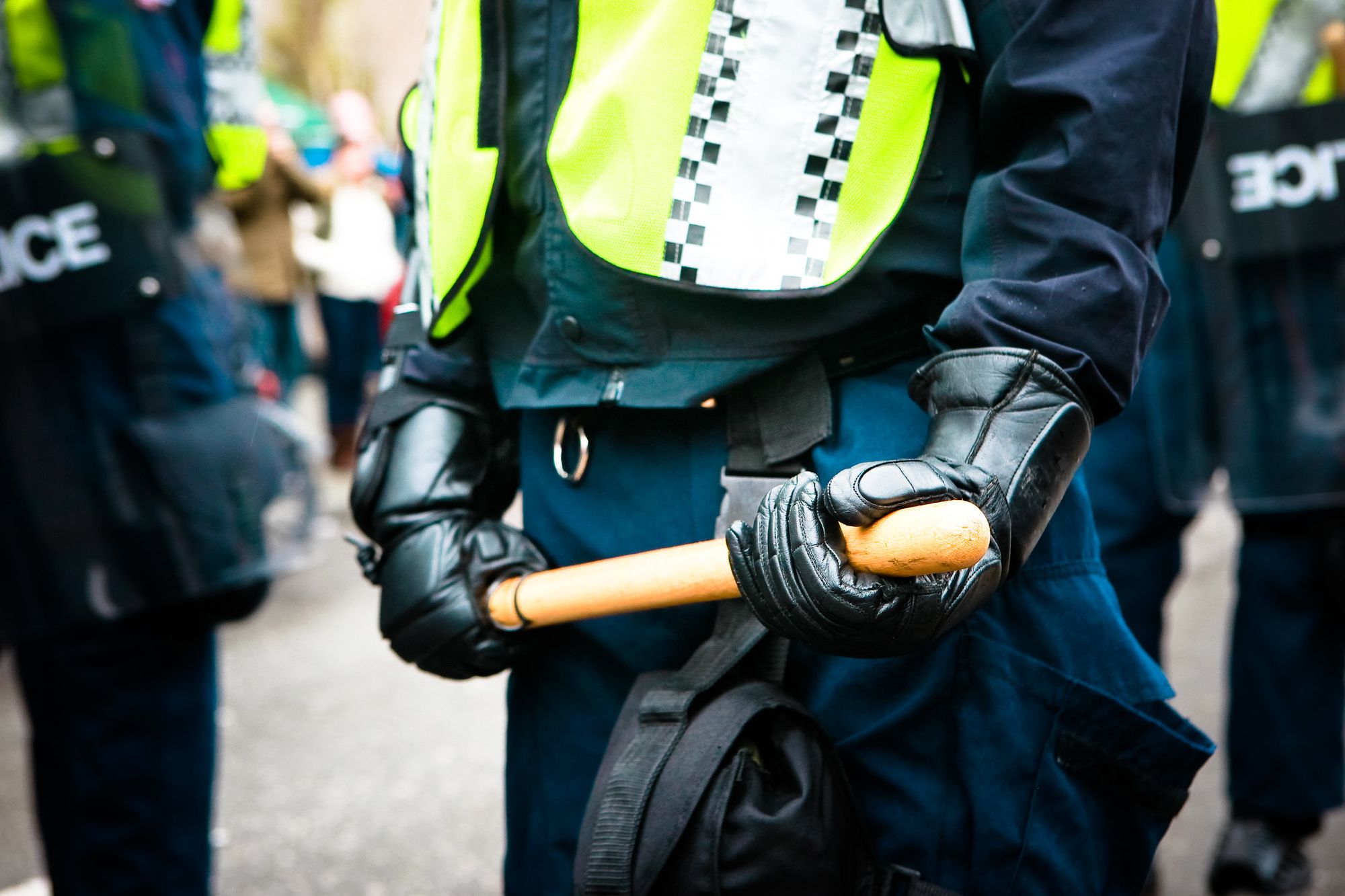
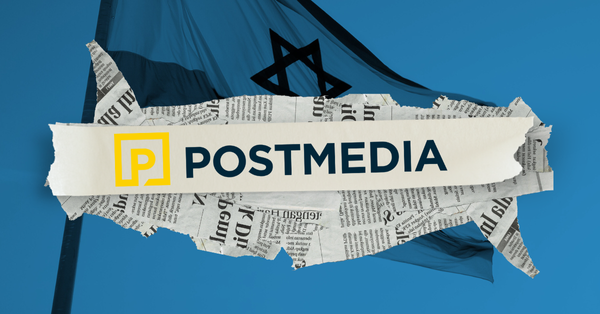
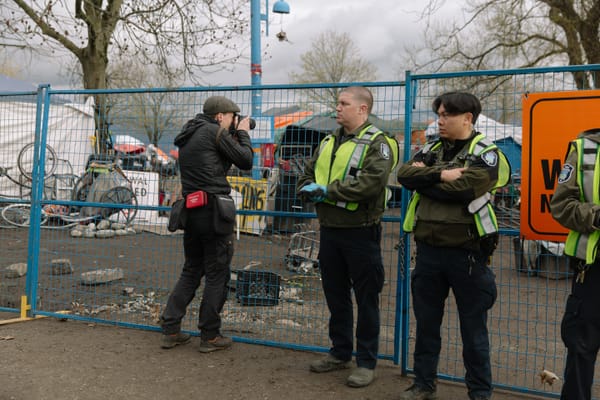
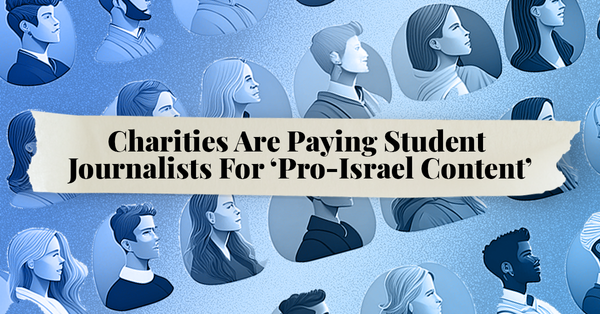

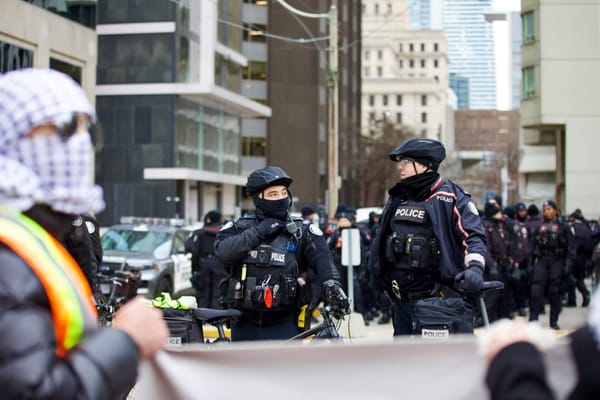
Member discussion